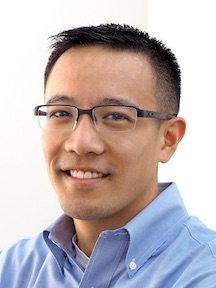By Alycia Wilson
This year’s recipient of the 2019 Common Good Award is a board-certified internist and policy advisor in the Philadelphia Department of Public Health who accredits much of his success to his art history degree.
Dr. Jeffrey Hom (ΦBK, Bowdoin College) says a lot of art reveals the human experience, and that is something that doctors and healthcare providers also think about. Today, he provides guidance to the health commissioner on access to treatment and overdose prevention for people suffering from substance abuse and addiction, particularly those who are members of underserved populations.
According to Bowdoin College, the Common Good Award was established in 1994 on the occasion of the Bowdoin College Bicentennial and honors those alumni who have demonstrated an extraordinary, profound, and sustained commitment to the common good, in the interest of society, with conspicuous disregard for personal gain in wealth or status.
Coupling an art history major with a chemistry minor provided Hom with an appreciation of both qualitative and quantitative fields of thinking, a skillset he is thankful for.
“[Art history] was, for me, a chance to learn about the history of places and people and events through art and for me that was really a fun and exciting and a creative way to learn about the past and about the present,” Hom said. “Chemistry was, for me, a chance to get back into the quantitative aspect of the world and to do problem-solving for which there really is one solution or one way to go about solving a problem.”
Membership in Phi Beta Kappa has also played a role in Hom’s sustained commitment to the common good. He explains that membership in the prestigious honors society has enriched his career and made him a more “well-rounded individual” in putting him on a path of lifelong learning.
An appreciation for lifelong learning was one reason why Hom served as a member of the Philadelphia Medical Reserve Corps, comprised of volunteer healthcare professions organized through the City’s Department of Public Health. These individuals of different medical backgrounds respond to public health-related emergencies as they come up, or events in which a public health presence may be needed. This corps responds to incidents such as massive flooding in Philadelphia that leads to resident displacement and decides the best way to ensure that appropriate shelters are set up, as well as measures to provide medical staff to serve individuals in need of medical treatment who can’t make it to a hospital.
Acquisition of skills and concepts comes to mind when Hom thinks of the value of a liberal arts education and Phi Beta Kappa membership, in both his personal and professional life. He refers to the honing of his observation and perception skills through art history classes, his research skills through writing classes, and skills that deal with professionalism in regard to work that is shared with his colleagues and audiences that he may want to engage and interact with. He explains that these skills are important to his role in public health and communicating concepts.
Hom believes an appreciation for the interconnectedness of concepts such as art history, economics, and sociology has welded to his work in public health.
“Health is more than just the provision of healthcare, and so thinking of all of the factors that contribute to someone’s health is important, especially in public health,” Hom said. “I think that my liberal arts education gave me that exposure to how all these different factors can pan into both an individual patient’s health but also the population’s health.”
Speaking to the population’s health, Hom points to the current opioid crisis affecting every part of the country. Among efforts such as prevention, treatment, and harm reduction, Hom cites efforts to reduce the stigma that surrounds substance use disorders. It was this kind of work that led him to being selected as a Presidential Leadership Scholar in 2018.
“I think there is so much to think about around that as people view drug use as a moral failing when it’s really not. It’s a chronic medical condition for which treatment is available and being successful is possible,” Hom said.
Alycia Wilson is a senior at the University of New Hampshire majoring in journalism with a concentration in political science. She interned at Plugged in with Greta Van Susteren in the fall. The University of New Hampshire is home to the Beta of New Hampshire chapter of Phi Beta Kappa.




